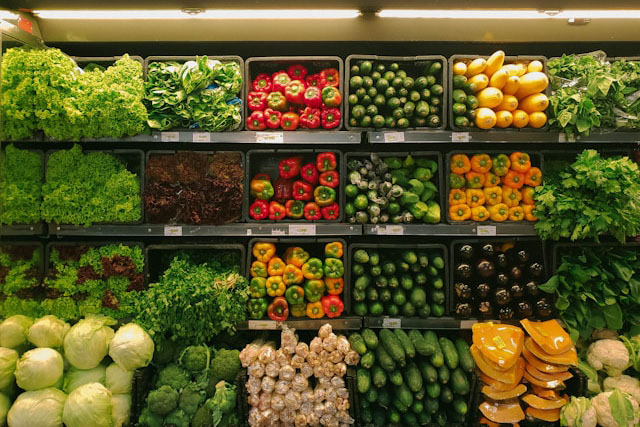How Farm Markets Are Helping to Revolutionize the Food Industry

In an era where convenience and speed often take precedence over quality, farm markets like Dutch Country Farm Market in Spring City, PA, are playing a pivotal role in reshaping the way we think about food. These local gems, often tucked away in rural communities or urban neighborhoods, are more than just places to buy fresh produce they are at the forefront of a movement that is revolutionizing the food industry. By connecting consumers directly with local farmers and food producers, farm markets are changing how we access and consume food, promoting sustainability, supporting local economies, and fostering a deeper connection between people and the food they eat.
Table of Contents
The Shift from Mass Production to Local Sourcing
For decades, the food industry has been dominated by large-scale industrial farming, which relies on mass production and long-distance transportation to supply supermarkets. This model has not only led to a disconnect between consumers and the origins of their food but also contributed to environmental issues such as excessive carbon emissions from food transport.
Farm markets are flipping this model on its head. At a farm market like Dutch Country Farm Market, customers can purchase locally grown produce and other food items that are often harvested just hours before being sold. This direct-from-the-farm approach eliminates the middleman, reducing the need for long supply chains and helping to lower the environmental footprint of our food. By choosing to shop locally, consumers contribute to a more sustainable and eco-friendly food system, where food miles are reduced, and the products are fresher and more nutritious.
Supporting Local Farmers and Food Producers
At the heart of the farm market revolution is the support for local farmers and food producers. For many small-scale farmers, selling directly at farm markets is a vital source of income. It allows them to bypass large retail chains and keep a larger portion of the profits, ensuring that the hard work they put into growing food is reflected in the final price. Farm markets also provide farmers with the opportunity to build relationships with their customers, fostering a sense of community and trust that is often lacking in large supermarket chains.
When you shop at a farm market, you’re not only getting fresh, high-quality products, but you’re also investing in the local economy. This support helps farmers thrive, promotes the growth of sustainable farming practices, and ensures that local food systems remain strong and resilient in the face of global food industry challenges.
Encouraging Healthy Eating Habits
One of the most significant ways that farm markets are revolutionizing the food industry is by encouraging healthier eating habits. Unlike supermarket produce, which can often be less fresh and more expensive due to the costs of transportation and storage, the food sold at farm markets is typically harvested at its peak ripeness. This means that it’s not only fresher but also more flavorful and nutritious.
Farm markets also encourage people to eat seasonally, as the produce available changes with the seasons. This can help consumers connect with the rhythms of nature and develop a deeper appreciation for the foods that are locally grown at different times of the year. Eating seasonally has numerous benefits, including improved nutrition, better taste, and a reduced environmental impact.
For families looking to make healthier food choices, shopping at a farm market is a step in the right direction. Not only can you find fresh fruits, vegetables, and dairy products, but many farm markets also offer healthy snacks, artisanal cheeses, meats, and homemade goods that are made with fewer preservatives and artificial ingredients than their supermarket counterparts.
Promoting Sustainable Agriculture Practices
The modern food industry is often criticized for its reliance on industrial farming practices that are harmful to the environment. These practices can lead to soil depletion, water pollution, and the overuse of pesticides and fertilizers. Farm markets, on the other hand, are rooted in promoting sustainable agricultural practices that focus on soil health, biodiversity, and minimizing the impact on the environment.
Many of the farmers at Dutch Country Farm Market practice organic and sustainable farming methods, which prioritize the long-term health of the land over short-term profits. By supporting these farmers, consumers are helping to protect natural resources, promote biodiversity, and reduce the environmental impact of food production.
Furthermore, farm markets often promote a variety of other sustainable practices, such as waste reduction, composting, and the use of eco-friendly packaging. In this way, they are helping to lead the charge in making the entire food system more sustainable and environmentally responsible.
Building a Sense of Community
Perhaps one of the most overlooked but equally important ways that farm markets are revolutionizing the food industry is by fostering a deeper sense of community. When you shop at a farm market, you’re not just buying food you’re participating in a vibrant, local community. You can interact directly with the farmers who grew your food, learn about their growing practices, and even get cooking tips and recipes for the items you buy.
Farm markets often serve as gathering places where neighbors meet, share stories, and connect over a shared love of good food. This sense of community creates a stronger bond between consumers and the food they purchase, as well as between individuals who are committed to supporting local, sustainable food systems.
A Future of Transparency and Connection
Farm markets are helping to create a future of greater transparency in the food industry. By shopping at a farm market, consumers know exactly where their food comes from and can ask farmers directly about growing practices, ingredients, and sourcing. This level of transparency fosters trust and ensures that the food we eat is produced in ways that align with our values.
As more people begin to prioritize local food systems and sustainable agriculture, farm markets will continue to play an essential role in transforming the food industry. By supporting farm markets, consumers are not only getting fresh, delicious food they are becoming part of a movement that values transparency, sustainability, and the health of both people and the planet.
Conclusion
The farm market revolution is here, and it’s transforming the way we access, enjoy, and think about food. Whether you’re picking up a basket of fresh produce, sampling locally made cheeses, or chatting with farmers about the harvest, farm markets like Dutch Country Farm Market are helping to build a more sustainable, healthier, and community-driven food system. By supporting your local farm market, you are contributing to this exciting movement and making a positive impact on the food industry for years to come.







